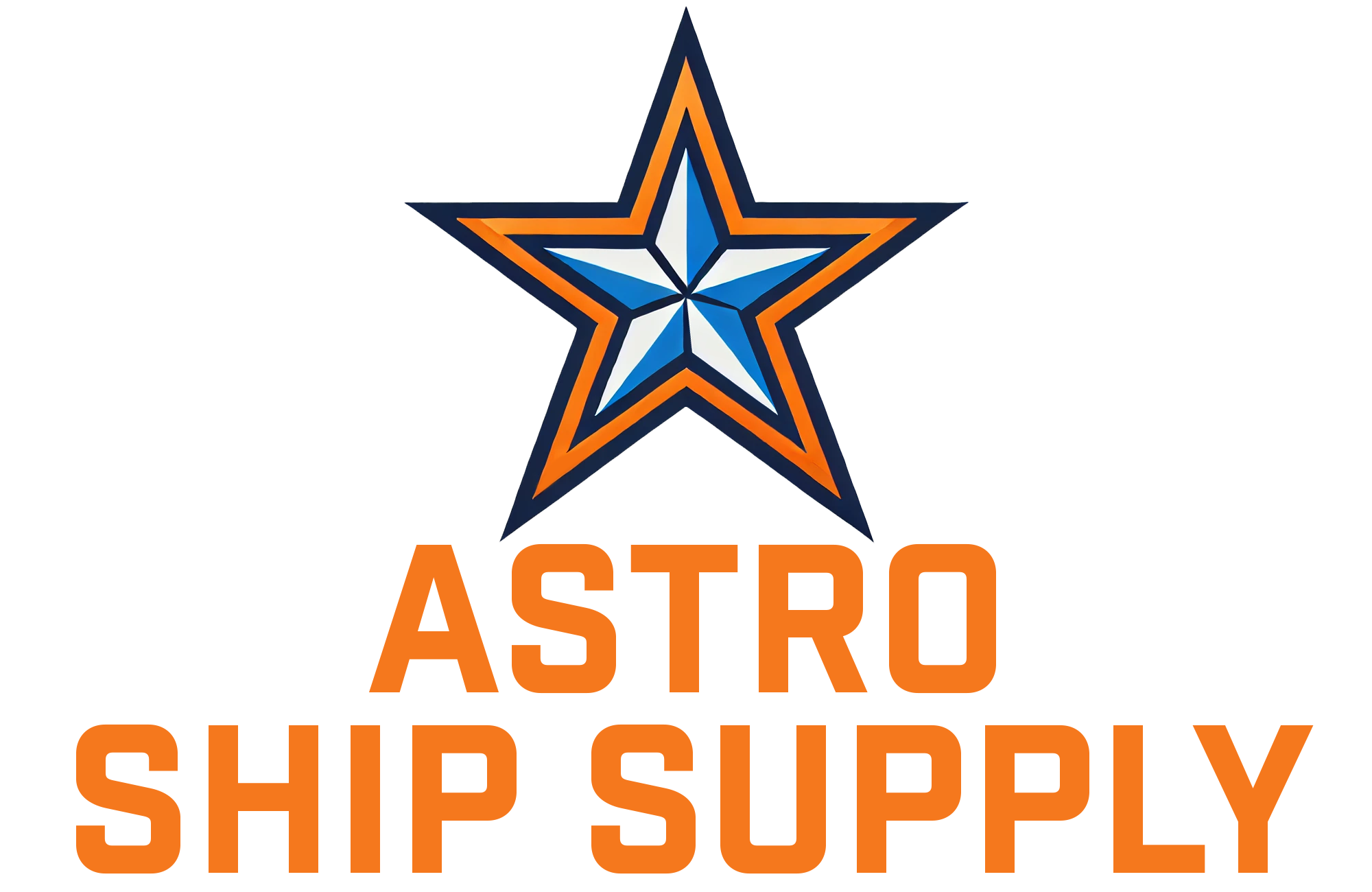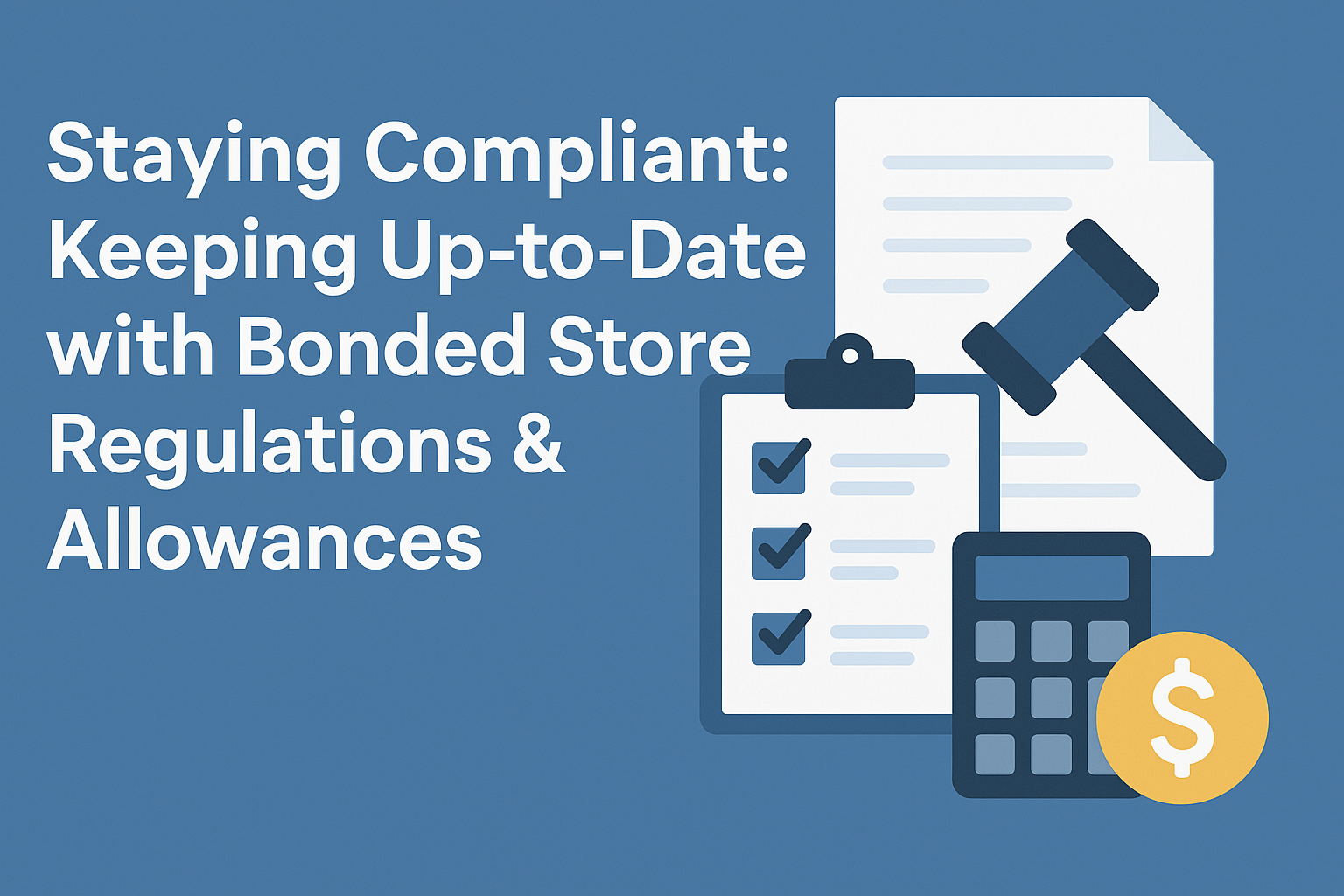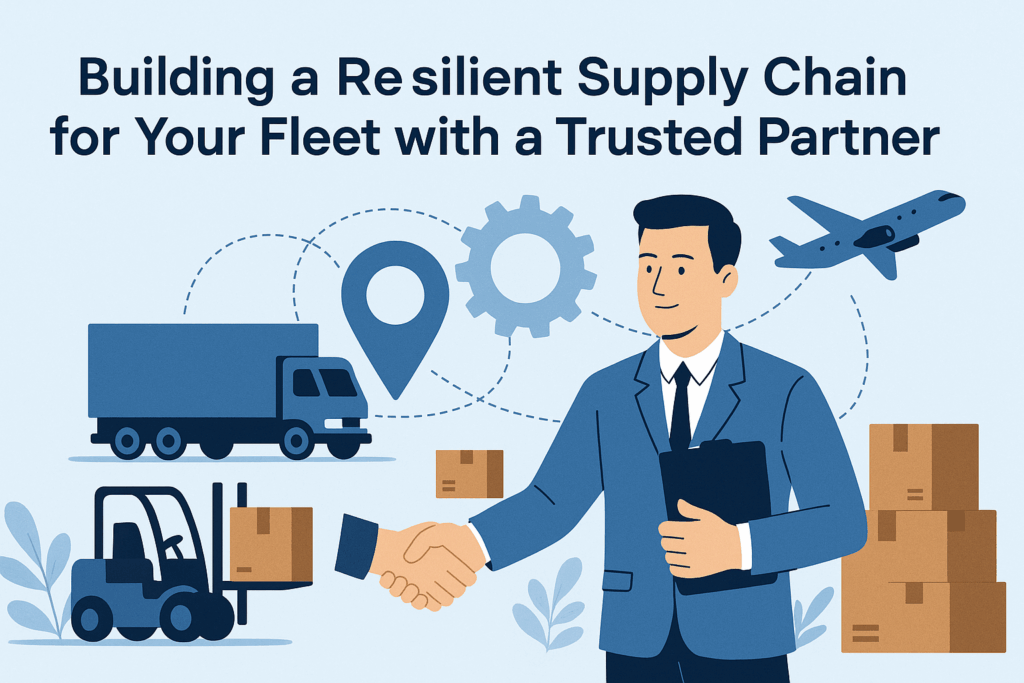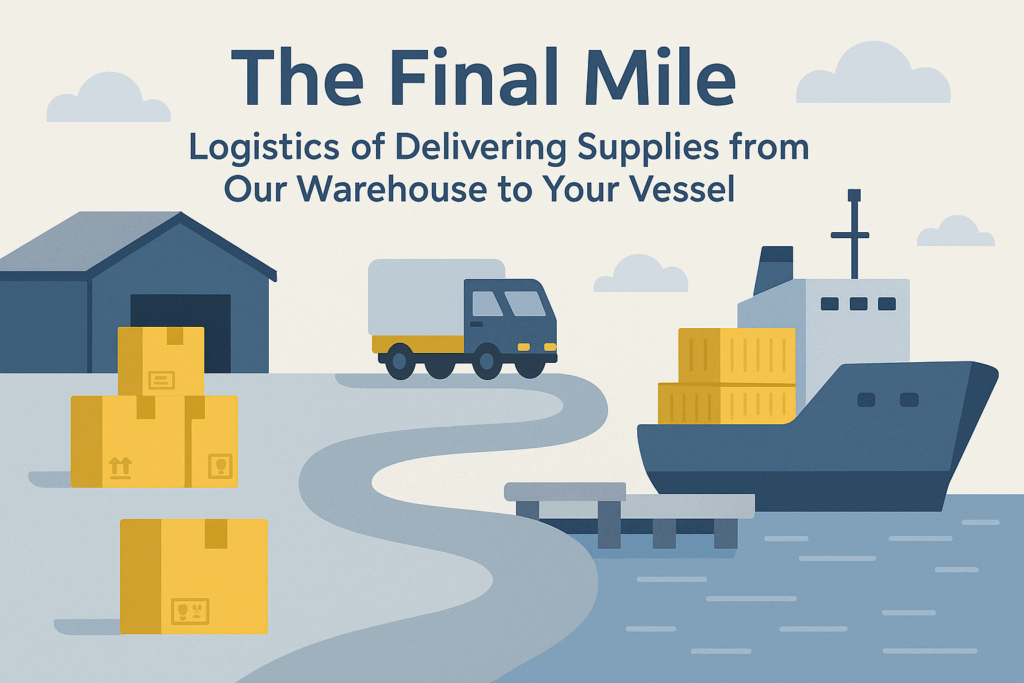This comprehensive guide delves into the intricate landscape of bonded store regulations, providing a detailed analysis of the rules, best practices, and real-world scenarios that impact your vessel’s operations. Our aim is to equip you with the knowledge needed to navigate this specialized area with confidence, ensuring compliance, minimizing risks, and maximizing the benefits of duty-free provisions.
—
The Core Concept of Bonded Stores: More Than Just Duty-Free
At its heart, a bonded store refers to a designated, secure area on a vessel where goods exempt from customs duties and taxes are stored. These goods are intended for consumption or use by the crew and sometimes passengers, and are typically sourced from a **ship chandler** like Astro Ship Supply. The primary purpose of these exemptions is to facilitate international trade and reduce the financial burden on vessels operating across borders.
Key Characteristics of Bonded Goods:
- Duty-Exempt: The most defining characteristic is their exemption from import duties, excise taxes, and often value-added tax (VAT).
- For Onboard Consumption: These goods are strictly for consumption or use onboard the vessel by crew members and, where applicable, passengers. They are not for resale or land-based distribution.
- Controlled Storage: Bonded goods must be stored in a secure, designated area that can be inspected by customs authorities.
- Strict Inventory Management: Detailed records of all bonded goods, including quantities, dates of acquisition, and consumption, are mandatory.
Why Are Bonded Stores So Crucial for Maritime Operations?
Beyond the obvious financial advantages, bonded stores contribute significantly to the overall well-being and efficiency of a vessel:
- Cost Efficiency: The most direct benefit is the substantial cost savings derived from duty and tax exemptions. This can significantly reduce operational expenses over time.
- Crew Morale: Access to a variety of goods, including comfort items, snacks, and personal care products, greatly enhances crew morale, particularly on long voyages where access to land-based amenities is limited.
- Convenience: Sourcing these items through a trusted ship chandler simplifies provisioning, reducing the logistical complexities of acquiring supplies in different ports.
- Operational Readiness: Ensuring vessels are well-stocked with essential provisions means they are ready for deployment at a moment’s notice, without delays caused by last-minute sourcing.
—
Navigating the Regulatory Labyrinth: Key Compliance Areas
The complexity of bonded store regulations stems from their international and national nature. Vessels must comply with the rules of their flag state, the port state where they are provisioning, and any transit countries. This multi-layered regulatory environment demands meticulous attention to detail.
International Maritime Conventions and Guidelines:
- IMO FAL Convention: The International Maritime Organization’s Facilitation (FAL) Convention aims to simplify and standardize customs and immigration procedures, including those related to ship’s stores. While not specifically detailing bonded store allowances, it provides a framework for efficient processing.
- World Customs Organization (WCO) Guidelines: The WCO offers various instruments and guidelines that promote harmonized customs procedures globally, influencing how bonded stores are handled.
National Customs and Tax Authorities:
Each country has its own specific regulations governing the import, storage, and consumption of bonded goods. These often include:
- Declaration Requirements: Detailed manifests of bonded stores must be submitted to customs authorities upon arrival and departure from a port.
- Allowance Limits: There are often limits on the quantity of certain items (e.g., alcohol, tobacco) that can be held in bonded stores or consumed by individuals. These limits can vary significantly by country and crew nationality.
- Reporting and Record-Keeping: Strict requirements for maintaining accurate records of inventory, purchases, and consumption are universally enforced.
- Sealing Procedures: In many ports, customs officials may seal bonded stores upon arrival and unseal them upon departure to prevent unauthorized access or diversion of goods.
Case Study: Navigating US Customs Regulations for Bonded Stores
Consider a vessel arriving in a U.S. port. Compliance with **U.S. Customs and Border Protection (CBP)** regulations is paramount. Key considerations include:
Scenario: A commercial cargo vessel, registered under a foreign flag, arrives at the Port of Houston to offload cargo and take on new provisions, including bonded stores.
Compliance Steps:
- Pre-Arrival Notification: The vessel’s agent must submit a detailed electronic manifest to CBP prior to arrival, including an accurate list of all ship’s stores, distinguishing between dutiable and duty-free (bonded) items.
- Customs Inspection: Upon arrival, CBP officers may board the vessel to conduct an inspection of the bonded stores. They will verify the manifest against the physical inventory.
- Sealing of Stores: Depending on the duration of the stay or specific regulations, CBP may require certain bonded stores (e.g., alcohol, tobacco) to be sealed, preventing access until the vessel is ready to depart or under specific conditions.
- Consumption Allowances: While in a U.S. port, consumption of bonded goods is generally restricted. Specific allowances for crew consumption may apply, but strict limits are in place to prevent the entry of duty-free goods into the domestic market.
- Record Keeping: The vessel’s master is responsible for maintaining meticulous records of all bonded store transactions, including any items consumed while in port. These records must be available for inspection by CBP.
- Departure Procedures: Before departure, CBP may conduct another inspection to ensure that no unauthorized bonded goods have been offloaded or consumed beyond allowances.
Consequences of Non-Compliance: Failure to comply with U.S. CBP regulations can result in severe penalties, including fines, seizure of goods, and even detention of the vessel. This underscores the importance of partnering with a knowledgeable ship chandler like Astro Ship Supply, who can ensure all documentation and delivery procedures adhere to local customs requirements.
—
Comparative Analysis: Different Approaches to Bonded Store Management
While the fundamental principles remain consistent, the nuances of bonded store management can vary. Let’s compare two common approaches:
1. In-House Bonded Store Management (Self-Provisioning):
Pros:
- Direct Control: Vessel operators have direct control over inventory, purchasing, and distribution.
- Potentially Lower Unit Cost: For very large fleets or specific items, bulk purchasing might lead to lower unit costs if managed efficiently.
Cons:
- High Administrative Burden: Requires dedicated personnel for procurement, customs declarations, inventory management, and compliance tracking across multiple jurisdictions.
- Increased Risk of Non-Compliance: Without specialized expertise, the likelihood of errors in documentation or adherence to varying national regulations increases significantly, leading to potential fines or delays.
- Logistical Challenges: Coordinating deliveries, managing customs procedures, and ensuring timely replenishment in diverse ports can be a logistical nightmare.
- Storage Requirements: Demands adequate onboard storage facilities that meet customs regulations for bonded goods.
2. Outsourced Bonded Store Services (Ship Chandlers):
Pros:
- Expertise and Compliance Assurance: Reputable ship chandlers specialize in bonded store regulations and customs procedures, significantly reducing the risk of non-compliance. They ensure all documentation is accurate and deliveries meet local requirements.
- Streamlined Logistics: Chandlers handle the entire supply chain, from sourcing and customs clearance to delivery directly to the vessel, simplifying the process for the crew.
- Cost-Effectiveness (Overall): While unit prices might seem slightly higher than direct bulk purchases, the overall cost savings from reduced administrative burden, minimized compliance risks, and efficient logistics often outweigh this.
- Wide Range of Products: Chandlers typically offer a comprehensive catalog of bonded items, ensuring vessels have access to a diverse selection.
- 24/7 Support: Many chandlers, like Astro Ship Supply, offer around-the-clock support, crucial for urgent provisioning needs.
Cons:
- Dependency on Supplier: Vessel operators are reliant on the chandler’s reliability and efficiency.
- Less Direct Control: Less direct control over the sourcing and specific handling of goods once an order is placed.
Conclusion: For most maritime operations, especially those with diverse routes and frequent port calls, **outsourcing bonded store services to a specialized ship chandler offers a superior balance of efficiency, cost-effectiveness, and critical compliance assurance.** The peace of mind that comes with expert handling of complex regulations is invaluable.
—
Beyond Compliance: Best Practices for Optimized Bonded Store Management
Achieving compliance is the baseline; optimizing your bonded store management can further enhance operational efficiency and crew satisfaction.
Key Strategies for Success:
- Partner with a Reputable Ship Chandler: This is perhaps the most critical step. Choose a chandler with a proven track record, extensive experience in bonded stores, and a strong understanding of international and local regulations. Look for certifications like ISO 9001:2015 for quality management and HACCP for food safety, as Astro Ship Supply demonstrates.
- Accurate and Timely Forecasting: Work closely with your crew to accurately forecast bonded store needs. This prevents overstocking (which can lead to waste or storage issues) and understocking (which impacts morale).
- Detailed Inventory Management: Maintain meticulous, real-time records of all bonded goods. Implement robust inventory control systems to track consumption, minimize pilferage, and facilitate quick audits.
- Crew Education: Ensure all relevant crew members are aware of bonded store regulations, particularly consumption allowances and the proper handling of duty-free items. Clear guidelines prevent unintentional breaches of customs rules.
- Regular Audits: Conduct internal audits of your bonded store inventory and documentation to identify and rectify any discrepancies before customs inspections.
- Leverage Technology: Utilize digital tools for ordering, inventory tracking, and communication with your chandler. This improves accuracy and efficiency.
Quotation-Ready Insights for Your Operations:
- “Compliance with bonded store regulations is not just about avoiding fines; it’s about seamless port calls and uninterrupted operations.”
- “A reliable ship chandler is your strategic partner in navigating the complexities of duty-free provisions, transforming a potential compliance headache into an operational advantage.”
- “Investing in accurate forecasting and meticulous inventory management for bonded stores directly translates to enhanced crew welfare and significant cost efficiencies.”
—
Future Outlook: Evolving Regulations and Digitalization
The landscape of maritime regulations is constantly evolving. Factors such as increased scrutiny on illicit trade, digitalization initiatives by customs authorities, and environmental concerns will continue to shape bonded store rules. Staying informed through industry updates and maintaining strong relationships with regulatory bodies and expert chandlers will be crucial.
The push towards digital declarations and electronic data interchange (EDI) is already transforming customs procedures. Vessels and their suppliers that embrace these technologies will benefit from faster clearances and reduced administrative burdens. Ship chandlers like Astro Ship Supply are at the forefront of this evolution, adapting their services to meet the demands of a more connected and regulated maritime industry.
—
Frequently Asked Questions (FAQ) About Bonded Store Regulations
What is the primary difference between ship’s stores and bonded stores?
Ship’s stores broadly refer to all provisions and supplies needed for the operation and maintenance of a vessel, including technical supplies, spare parts, and general consumables. Bonded stores are a specific category of ship’s stores that are exempt from customs duties and taxes because they are intended for consumption or use exclusively onboard the vessel by the crew or passengers, and not for land-based sale or distribution. Essentially, all bonded stores are ship’s stores, but not all ship’s stores are bonded stores.
Who is responsible for ensuring compliance with bonded store regulations?
Ultimately, the Master of the vessel holds the primary responsibility for ensuring compliance with all customs regulations, including those pertaining to bonded stores. However, in practice, the vessel’s owner or operator, along with their appointed ship chandler, plays a crucial role in managing the procurement, declaration, and delivery of these goods in accordance with local and international laws. A reputable ship chandler like Astro Ship Supply takes on much of this burden through their expertise and adherence to compliance protocols.
Can bonded stores be consumed while the vessel is in port?
This varies significantly by country and specific port regulations. In many jurisdictions, consumption of certain bonded items (especially alcohol and tobacco) is strictly restricted or completely prohibited while the vessel is in port. Customs authorities may even seal bonded stores to prevent access. It is crucial to be aware of and adhere to the local rules of each port of call. Violations can lead to significant penalties.
What are the consequences of non-compliance with bonded store regulations?
The consequences of non-compliance can be severe and include: significant monetary fines, seizure of the non-compliant goods, delays in port clearance or even vessel detention, and damage to the vessel’s or company’s reputation. Repeated or severe infractions can also lead to increased scrutiny from customs authorities in future port calls. This highlights the importance of thorough documentation and partnering with experienced suppliers.
How can a ship chandler help with bonded store compliance?
A professional ship chandler like Astro Ship Supply provides invaluable assistance in bonded store compliance by:
- Ensuring accurate and complete documentation for customs declarations.
- Adhering to all local customs procedures and regulations for delivery.
- Providing expert advice on permissible allowances and restrictions in various ports.
- Managing the secure transport and delivery of bonded goods to the vessel.
- Keeping up-to-date with regulatory changes to advise clients proactively.
Their expertise significantly reduces the administrative burden and compliance risk for vessel operators.
—
Your Partner in Seamless Ship Supply: Astro Ship Supply
At Astro Ship Supply, we understand the critical importance of reliable and compliant bonded store services. Based in Houston, Texas, we provide comprehensive ship chandlery and supply services to vessels operating in the Port of Houston and across the Gulf Coast region. Our commitment to excellence is reflected in our strict adherence to quality management (ISO 9001:2015) and food safety (HACCP) standards, as well as full compliance with the International Ship and Port Facility Security (ISPS) Code and U.S. Customs and Border Protection requirements.
We take pride in being a trusted partner, ensuring that your vessel is always prepared with top-quality provisions, deck supplies, accommodation essentials, and, critically, compliant bonded goods. Our dedicated team and trusted supply network work 24/7 to help you stay ahead, guaranteeing your crew’s comfort, your vessel’s efficiency, and your journey’s success. Request a quote today and experience the Astro Ship Supply difference.
—
Explore Our Services:






